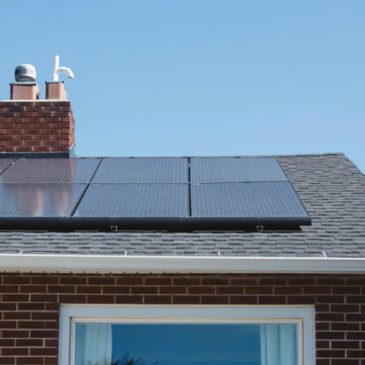Hey Solar Panels, Are You Still On Up There?
You’ve probably heard what a great investment solar panels are. For merely the cost of installing and maintaining your solar panel system, you essentially get free energy. If you’re being tortured by high electric bills every month, solar panels could be just what you need to get some relief.
But once the solar panels have been installed “up there,” how do you actually know if they’re working, and working at their full capacity? After all, you can’t see how well they are absorbing the sun’s rays – that’s just not possible with only your eyes. Well, never fear! There are several ways you can tell if your solar panels are working and if you’re getting your money’s worth. In this guide, we take a look at how to accomplish this task.
1. Start With Your Solar Meter
The easiest way to tell whether or not your solar panels are working and how well they are working is simply by checking your solar meter. Your installer will be the one to tell you where the solar meter is located when they install the system.
Your solar meter shows a number of different readings, each of which is relayed to your solar company. To begin, look for the total Kilowatt-hours generated. Whatever that number is, that’s how much solar power your panels are absorbing. If there is a number indicated, and that number is staying consistent or rising, then your solar panels are doing just fine.
2. Check Your Inverter Next
Again, your solar company can tell you where the inverter is if you don’t already know about its location. The inverter is the mechanism that turns the direct current energy from the solar panels into alternating current that your home normally uses.
If the inverter seems to be operating without difficulty, your solar panels are probably fine. If there are any red indicator lights illuminated, then there may be a problem with your system. If this is the case, it is recommended that you call your solar company.
3. Check Your Monthly Power Bill
For many, the whole point of installing solar panels is to save money on your electric bill. If your solar panels are generating enough electricity, you may not have an electric bill at all. In fact, if you live in an area with net metering, you may even receive an electricity credit when your solar panels feed energy back into the power grid.
If your electric bills are not going down and you are using the same amount of electricity you did before solar panels, there is probably an issue you need to address.
4. Contact Your Solar Company
If none of the above methods are conclusive, but something still doesn’t feel quite right, you can always contact your solar company to verify that everything is going as it should. They can look at the data about your system and its performance and let you know if anything is wrong.
Keep in mind that the performance of a solar array can vary according to things like where the panels are placed, how many you have, and how often you have inclement weather in your area.
If the weather is not great, for example it is cloudy or raining, you may not experience the same level of performance by your solar array. However, on a day-to-day basis, there is really no reason that a solar panel array, if properly installed by a reputable solar company, should not absorb solar energy and convert it to electricity for your use at a healthy rate. For help finding an affordable, reliable solar panel system, contact CalculateSolarSavings now.

